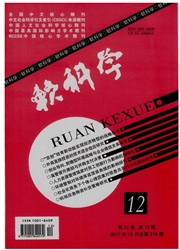

 中文摘要:
中文摘要:
针对不对称信息下代理成本对外包策略的影响,以一个简单二级供应链为研究对象,运用委托代理理论,分别建立制造商和销售商主导激励模型。研究结果表明:当销售努力为不对称信息时,制造商希望聘请销售商来完成销售任务,此时销售商最优的努力水平a*和利润分享比例β*均向下发生了扭曲;而当制造成本为不对称信息且边际收益不低于边际风险成本时,只有在特殊情况下(单位制造成本c很低时),销售商才会愿意自己进行生产,否则其也乐意委托制造商完成分包任务,此时尽管销售商的最优努力水平a**向下发生扭曲,但为了调动制造商的生产积极性,最优的利润分享比例β**向上发生扭曲。最后,通过数值例子证明了结论的有效性。
 英文摘要:
英文摘要:
To analyze the effect of agency costs caused by asymmetric information on outsourcing strategy, this paper established the manufacturer-led and retailer-led incentives model based on the principal-agent theory. Results showed that, when sales effort was asymmetric information, the manufacturer tended to hire a retailer to complete the sales tasks. At this time, the optimal effort level a * of retailer and profit sharing ratio β * were downward distorted. While, when manufacturing cost c was asymmetric information and marginal revenue is not lower than the marginal risk cost, only in exceptional circumstances (unit manufacturing eostc was low), the retailer would be willing to manufacture by himself. Otherwise, it was willing to entrust the manufacturer for production. Then, although the downward distortion of retailer's best effort a ** occurred, the upward distortion of optimal profit-sharing ratio β ** had taken place, to mobilize the enthusiasm of the manufacturer's production. Finally, a numerical instance was given to validate the conclusions.
 同期刊论文项目
同期刊论文项目
 同项目期刊论文
同项目期刊论文
 期刊信息
期刊信息
